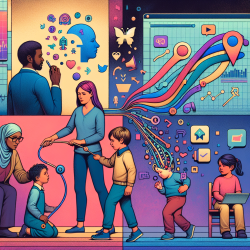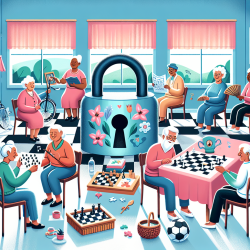Cultural competence has long been a cornerstone in addressing diversity within clinical settings. However, it often falls short by reinforcing stereotypes and ignoring the complexities of intersectionality. Enter cultural humility—a transformative approach that emphasizes lifelong learning and self-reflection. This blog explores the CARE model (Curiosity, Attentiveness, Respect and Responsiveness, and Embodiment) as a framework for integrating cultural humility into clinical research and practice.
The CARE Model Explained
The CARE model offers a structured approach to operationalizing cultural humility in clinical research. Let's break down its components:
- Curiosity: Encourages practitioners to explore their motivations and biases while engaging with diverse populations. It's about asking questions not only about others but also about oneself.
- Attentiveness: Involves active listening and being present. It requires abandoning stereotypes and focusing on the whole person.
- Respect and Responsiveness: Entails engaging with individuals as equals, minimizing power imbalances, and being open to understanding different perspectives.
- Embodiment: Focuses on attunement to oneself and others, fostering empathy through bodily presence and interaction.
Practical Applications for Practitioners
For practitioners in fields such as online therapy or special education, integrating the CARE model can significantly enhance their practice. Here's how:
- Self-Reflection: Regularly engage in self-reflection to understand personal biases and assumptions that may affect interactions with clients.
- Active Listening: Practice active listening techniques such as paraphrasing and reflecting feelings to ensure clients feel heard and understood.
- Cultural Sensitivity Training: Participate in training sessions that focus on cultural humility rather than mere competence.
- Community Engagement: Collaborate with diverse communities to gain deeper insights into their unique challenges and strengths.
The Importance of Ongoing Research
The field of cultural humility is evolving, and ongoing research is crucial for its development. Practitioners are encouraged to engage with current literature and contribute to research efforts. The CARE model provides a foundation for exploring new dimensions of cultural humility in various contexts.
A Call to Action
The integration of cultural humility into clinical practice is not just beneficial but essential for authentic engagement with diverse populations. Practitioners are urged to adopt the CARE model in their daily interactions and seek continuous improvement through education and reflection.
To read the original research paper, please follow this link: The CARE (Curiosity, Attentiveness, Respect and Responsiveness, and Embodiment) Model: Operationalizing Cultural Humility in the Conduct of Clinical Research.










